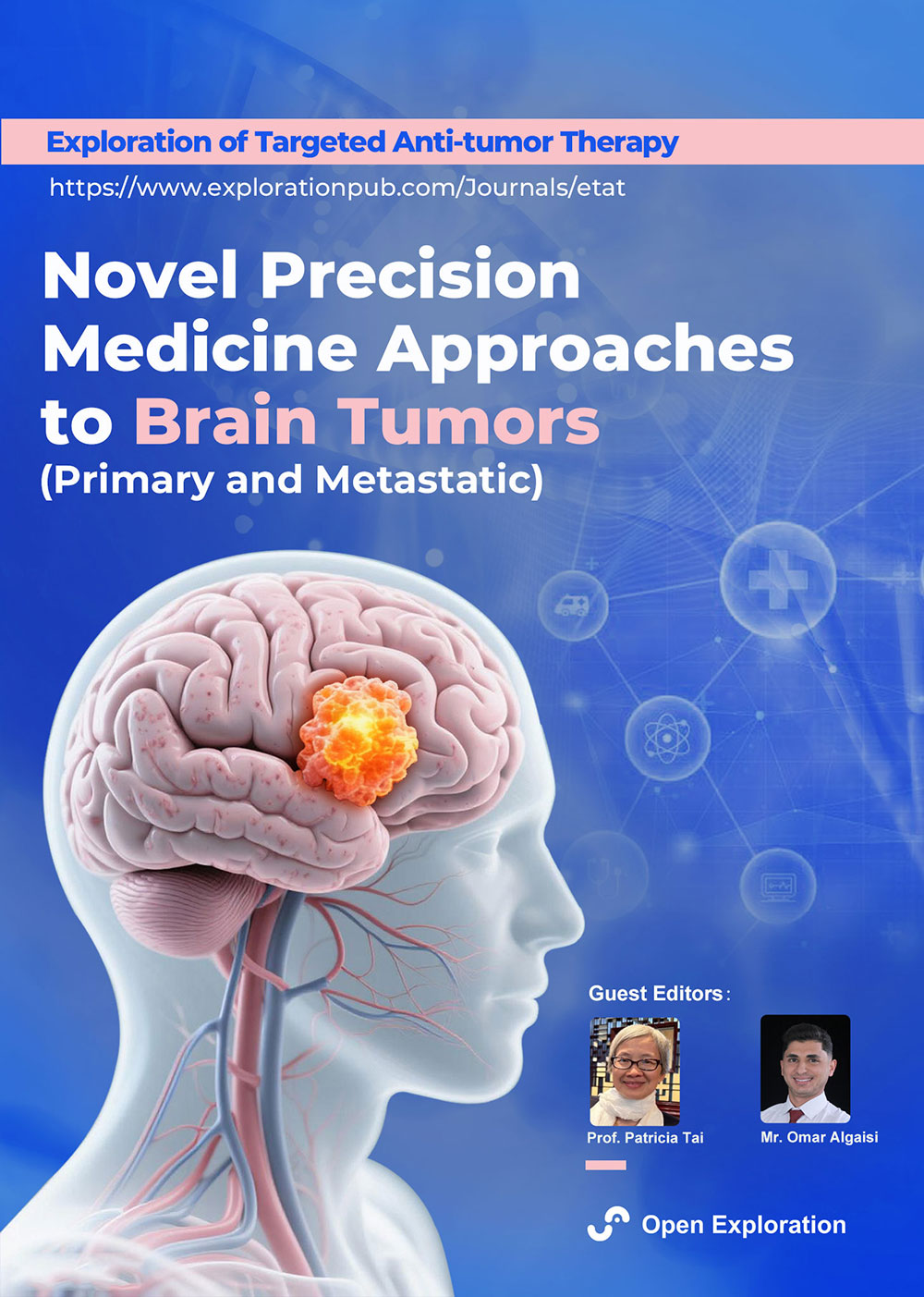
Novel Precision Medicine Approaches to Brain Tumors (Primary and Metastatic)
Guest Editors
Prof. Patricia Tai E-Mail
Department of Oncology, University of Saskatchewan, Canada
Research Keywords: Merkel cell carcinoma, melanoma, prostate cancer, brain tumor, lung cancer
Mr. Omar Algaisi E-Mail
Faculty of Nursing, Al-Zaytoonah University, Amman, Jordan
Research Keywords: Sexual health, nursing, pain, patient satisfaction, systematic analysis, reviews
About the Special lssue
Novel precision medicine approaches are transforming the diagnosis and treatment of brain tumors, both primary and metastatic. These strategies utilize advanced imaging, molecular profiling and targeted therapies to tailor interventions to the unique genetic and biological characteristics of each tumor.
Actionable mutations in primary brain tumors, including epidermal growth factor receptor (EGFR) amplification, isocitrate dehydrogenase (IDH1 and 2) mutations and O-6-methylguanine-DNA methyltransferase (MGMT) methylation status, are increasingly used to guide systemic therapy. radiotherapy decisions. Immunotherapy, including checkpoint inhibitors and personalized vaccines, is also being explored, though challenges remain due to the brain’s immunosuppressive microenvironment. Tumor treating fields have evolved showing survival benefit as maintenance treatment of glioblastoma after initial chemotherapy and radiotherapy.
Metastatic brain tumors are mostly from primaries of the lung, breast, or melanoma and precision medicine enables systemic treatments that cross the blood-brain barrier. Agents like osimertinib for EGFR-mutant lung cancer and trastuzumab derivatives for full name (HER2)-positive breast cancer have shown efficacy in controlling intracranial disease. Liquid biopsies and circulating tumor DNA (ctDNA) are emerging tools for monitoring treatment response and detecting recurrence noninvasively.
Advanced imaging techniques—such as functional magnetic resonance imaging (MRI), positron emission tomography (PET), and radiomics aided by artificial intelligence nowadays play a critical role in precision diagnostics. These modalities help differentiate tumor progression from treatment-related changes and guide surgical planning with greater accuracy.
Artificial intelligence and machine learning are further enhancing precision medicine by integrating genomic, imaging, and clinical data to predict outcomes and personalize care pathways. Multidisciplinary collaboration among neuro-oncology, radiology, pathology, and genomics is essential to translate these innovations into improved survival and quality of life.
In summary, precision medicine is redefining brain tumor care by moving beyond one-size-fits-all approaches. As research advances, these personalized strategies promise more effective, less toxic treatments tailored to the molecular fingerprint of each patient’s disease.
Keywords: Positron emission tomography, magnetic resonance imaging, computerized tomography, precision medicine, cost-effectiveness, healthcare cost, outcome, cancer, diagnosis, treatment